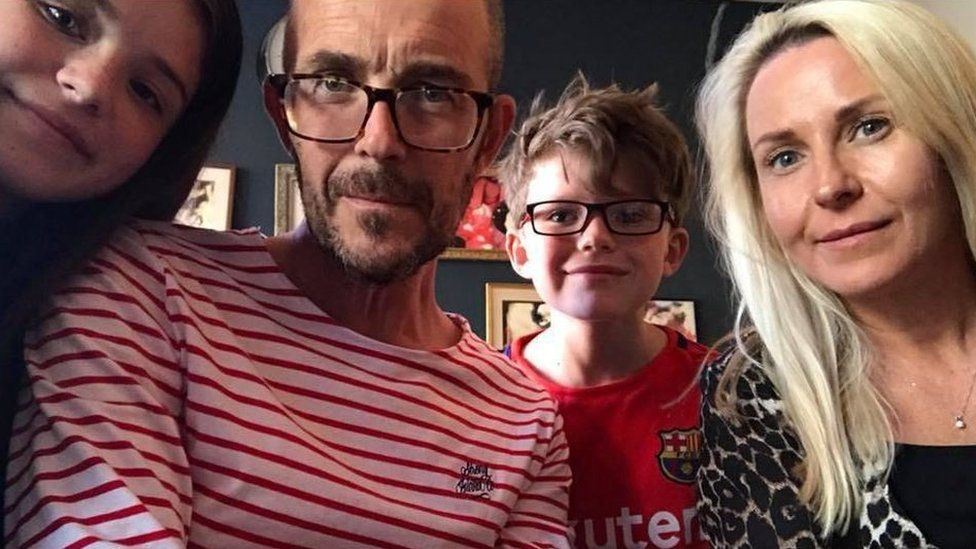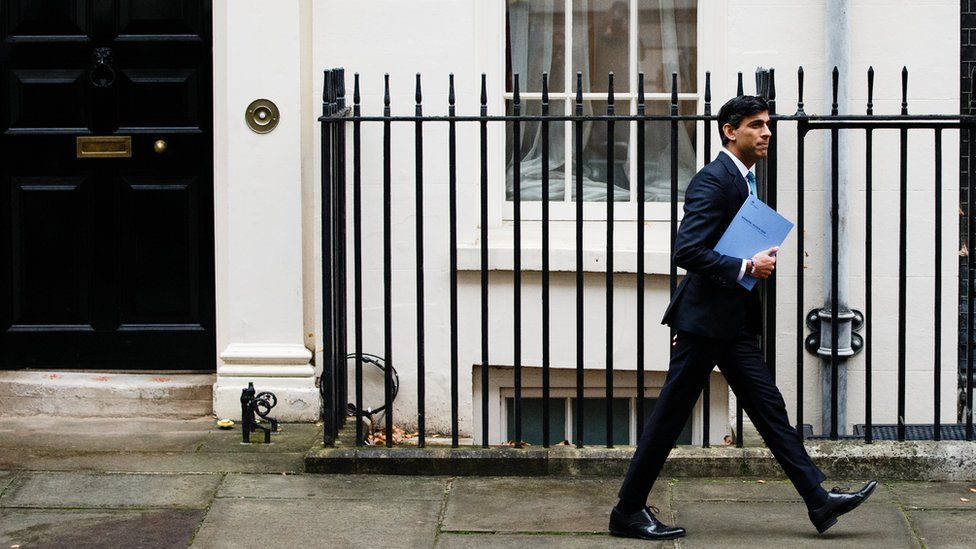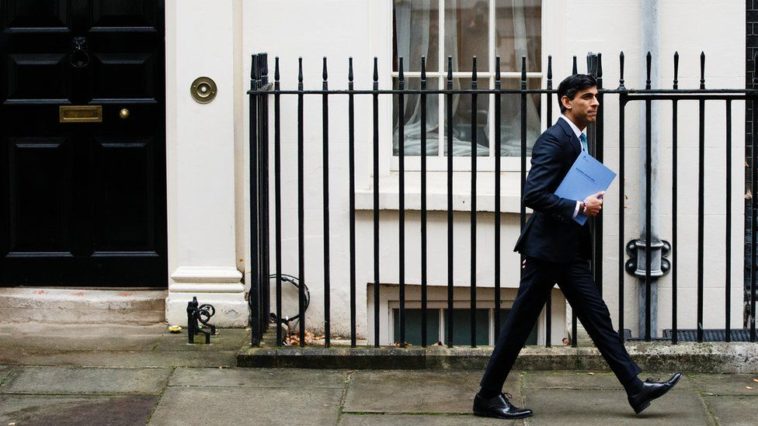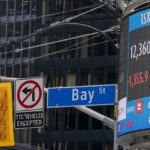Covid crisis: ‘I’ve been excluded from any help’
Beauty therapist Kim Kingston had no idea she could be cut out of government support in a pandemic by receiving income from her late husband’s pension.
When the coronavirus crisis struck, Kim’s work was cut off by the lockdown.
But she has received nothing from government schemes designed to help support the self-employed.
The government said it had “designed and provided one of the most generous self-employed income support schemes in the world”.
The Treasury’s position is that self-employment support has been targeted at lower earners and those most reliant on trading income, and that many people may be eligible for other government support.
But Kim, who lost her husband David to cancer in November 2018, is among the people shut out of government support schemes.
Research suggests the number of those excluded people could run to millions.
‘Build my dream’
Kim, who is also a make-up artist, refused to let her clients down, keeping up her work between visits to her husband David as he lay in hospital with a brain tumour.
“I don’t think you can ever fully adjust to losing someone who’s been in your life for so long.
“We did everything together; we had a good marriage. He was my best friend – he was a wonderful, wonderful man.”
When he died Kim poured energy into her work, even as she grieved and supported her children, using money passed to her from David’s pension scheme to redevelop The Beauty Shed, her business premises in the rear garden of her family home in Southsea.

“I had a little wooden shed and used that as my treatment room. It was always my dream to have something bigger that was purpose-built for everything I needed it to do.
“By using that pension to build my dream – and David’s dream as well – was amazing because I know if he was here he would think: ‘This is fantastic’.”
In 2019 her business took off. “In 2019 I did 54 weddings, travelling all over the south coast. It’s a job I thoroughly enjoy doing – it’s great to be part of someone’s biggest day of their lives. But then in 2020 because of the pandemic it collapsed – I’ve only done four.”
“[Chancellor] Rishi Sunak stood up and said no-one would be forgotten. No one would be left behind. So I felt a massive sense of relief, because I could work, that my business would be looked after – which clearly it hasn’t been because I’ve been excluded from any help.”
Income rule
“Boris Johnson keeps saying the government’s doing ‘everything we can’. But they are not – they’re just not.”
When the pandemic struck in the spring of 2020, she was shocked to learn that the money from David’s pension ruled her out of the Self-Employed Income Support Scheme.
Her Majesty’s Revenue and Customs (HMRC) treated it as income, and because it was slightly larger than her income from self-employment in 2018/19, she fell foul of a rule excluding people who earn less than 50% of their income from self-employment.

“I still can’t get my head round the fact that a dead person’s money can be seen as an income. My accountant couldn’t explain it to me. The rule is supposed to stop people claiming because they have another job. So basically I’m being told my dead husband’s pension money is another job.”
HMRC estimates that 1.4 million people aren’t eligible for the Self-Employment Income Support Scheme because their income from self-employment is less than half of their overall income.
‘No need for barriers’
Many are ruled out because they top up modest pension incomes with part-time jobs or self-employment.
Research body the Institute for Fiscal Studies (IFS) said there was “clear unfairness” in some of the exclusions.
The IFS found 1.3 million people excluded by that rule could be included at a cost of less than £800m for three months.
A further 225,000 people are excluded by a rule that means you are ineligible if you earn more than £50,000.
They could also be included at a cost of £1.3bn over three months – or less if support was reduced for higher earners.
That compares to around £90bn that the government expects to spend on furlough and self-employment.
IFS director Paul Johnson told the BBC: “There was no need to have those barriers. They’ve got the records they need. They could have, at relatively modest cost, extended the support beyond what they did.
“It may be a minority but it’s certainly left some people with real, big problems. If your income goes down from £55,000 to nothing through no fault of your own, you are clearly in big trouble,” he said.
“If your self-employment income was less than half your income last year but much more than half this year – you can still also be in serious trouble.
“This really is letting a significant number of people drop through a net and hit the ground really quite hard.”
Research by Standard Life Foundation suggests that 3.8 million adults have lost earnings because of anti-virus measures yet received nothing from either the furlough or the self-employed schemes.
This includes those excluded from the self-employed schemes and those denied furlough and instead made redundant.
Standard Life Foundation chief executive Mubin Haq said: “At the start of the pandemic the Chancellor promised workers they would be supported. Millions have but far too many, who’ve worked hard and paid their taxes have been left high and dry. Too many are struggling to pay for food and everyday essentials.”
Schemes ‘under review’
A Treasury spokesperson said: “As the IFS acknowledge, the government has designed and provided one of the most generous self-employed income support schemes in the world which has helped nearly 3 million people claim almost £20bn pounds.
“The scheme is targeted to provide support to those most in need – lower earners and those that rely solely on their self-employment income.
“Many of those who do not qualify will benefit from other measure in our unprecedented £280bn package of support, such as furlough.
“We acknowledge that it has not been possible to support everyone in the way they might want, but we continue to work with stakeholders and keep our schemes under review.”
Published at Wed, 27 Jan 2021 00:50:44 +0000





Comments
Loading…